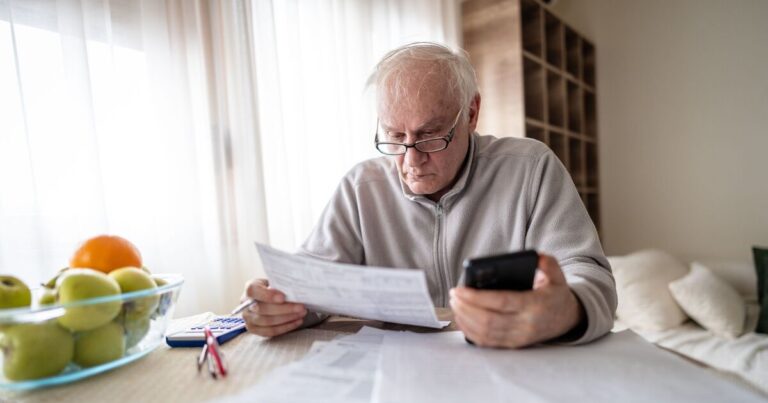
The State Pension, providing a steady income for nearly 12.7 million elderly people across Great Britain, is administered by the Department for Work and Pensions (DWP). It’s paid to those who have reached the UK Government’s eligible retirement age – now 66 for both men and women – and have made at least 10 years’ worth of National Insurance contributions.
Currently, around 3.4 million individuals are claiming the New State Pension, receiving payments of up to £221.20 each week, which equates to £884.80 per pay period as the contributory benefit is typically paid every four weeks. The majority of overall claimants (9.3 million) are receiving Basic State Pension payments of up to £169.50 each week, equivalent to £648 per pay period.
The type of State Pension a person receives depends on their date of birth – men born before April 6, 1951 and women born before April 6, 1953 are eligible for the Basic State Pension while those born after these dates will receive the New State Pension.
State Pension payments after someone passes away
The State Pension process doesn’t automatically terminate upon the death of an individual, and certain actions need to be taken. You’re required to notify the Pension Service to halt the payments by contacting their helpline at 0800 731 0469 when a person dies.
Depending on your deceased spouses or civil partner’s National Insurance record and when they reached State Pension age, you may qualify for additional funds from their State Pension.
Those under the State Pension age could be eligible for Bereavement benefits too.
Inheritance and the Basic State Pension
Regarding inheritance and the Basic State Pension, if your spouse or civil partner was of State Pension age before April 6, 2016, you’ll need to get in touch with the Pension Service after their passing to verify what claims are viable.
You might be able to enhance your own Basic State Pension through the deceaseds qualifying years, that is if you’re not already receiving the full amount.
In case your spouse or civil partner arrived at State Pension age on or subsequent to April 6, 2016, or if you are below State Pension age when they pass away, using the Your partner’s National Insurance record and your State Pension tool on the official GOV. UK website will help determine potential inheritances.
For single individuals, those divorced, or who have had their civil partnership dissolved, an estate claim for a portion of the Basic State Pension may still be possible.
If an individual passes away after reaching State Pension age, and if the State Pension had not been claimed, the estate can claim up to three months of the Basic State Pension.
Deferring state pension
Once someone reaches State Pension age, they have the option to defer payments if they choose to continue working. This action will actually increase payments when they eventually decide to claim by around £660 each year.
Topping up State Pension
According to guidance on GOV. UK, anyone who has topped up their State Pension may be able to pass some or all of the top-up to their spouse or civil partner.
Inheritance and the New State Pension
A person might be able to inherit an additional payment on top of their new State Pension if they are widowed. However, an individual cannot inherit anything if they remarry or form a new civil partnership before they reach State Pension age.
Inheritance and additional State Pension
If a marriage or civil partnership began before April 6, 2016, and one of the following circumstances applies, then a person may inherit part of their deceased partner’s Additional State Pension.
- The deceased partner reached State Pension age before April 6, 2016
- They died before April 6, 2016 but would have reached State Pension age on or after that date
Inheriting a protected payment
A person will inherit half of their partner’s protected payment if their marriage or civil partnership with them began before April 6, 2016, and their State Pension age is on or after April 6, 2016, or they died on or after April 6, 2016. This payment will be made with the State Pension.
Inheriting additional State Pension or a lump sum
An individual may be eligible to inherit part or all of their partner’s additional State Pension or lump sum if:
-
They died while they were deferring their State Pension or had started claiming it after deferring
-
They reached State pension age before April 6, 2016
-
They were married or in the civil partnership when they died.
You can check your State Pension to calculate how much money you will receive on the GOV. UK website here.

















